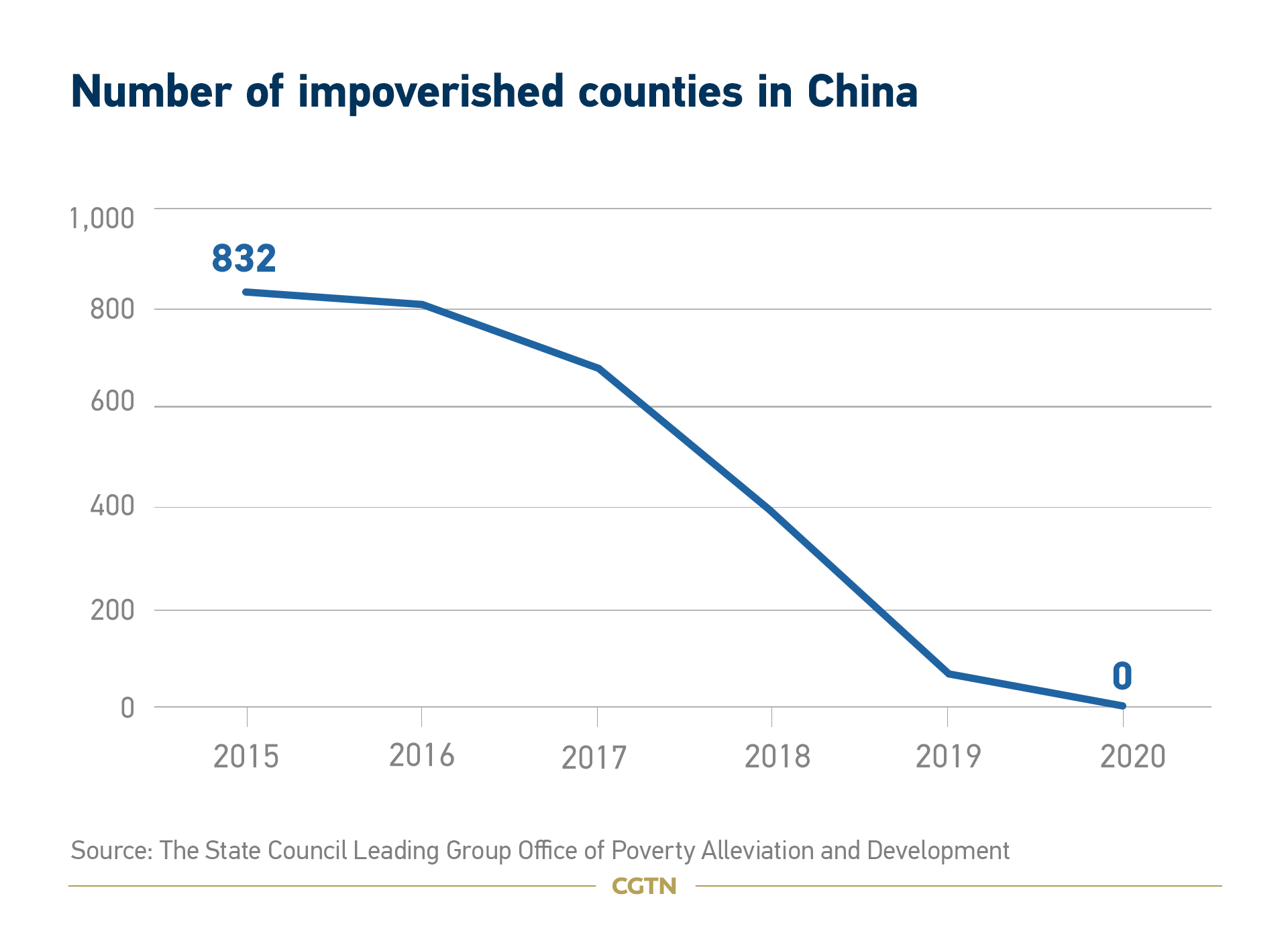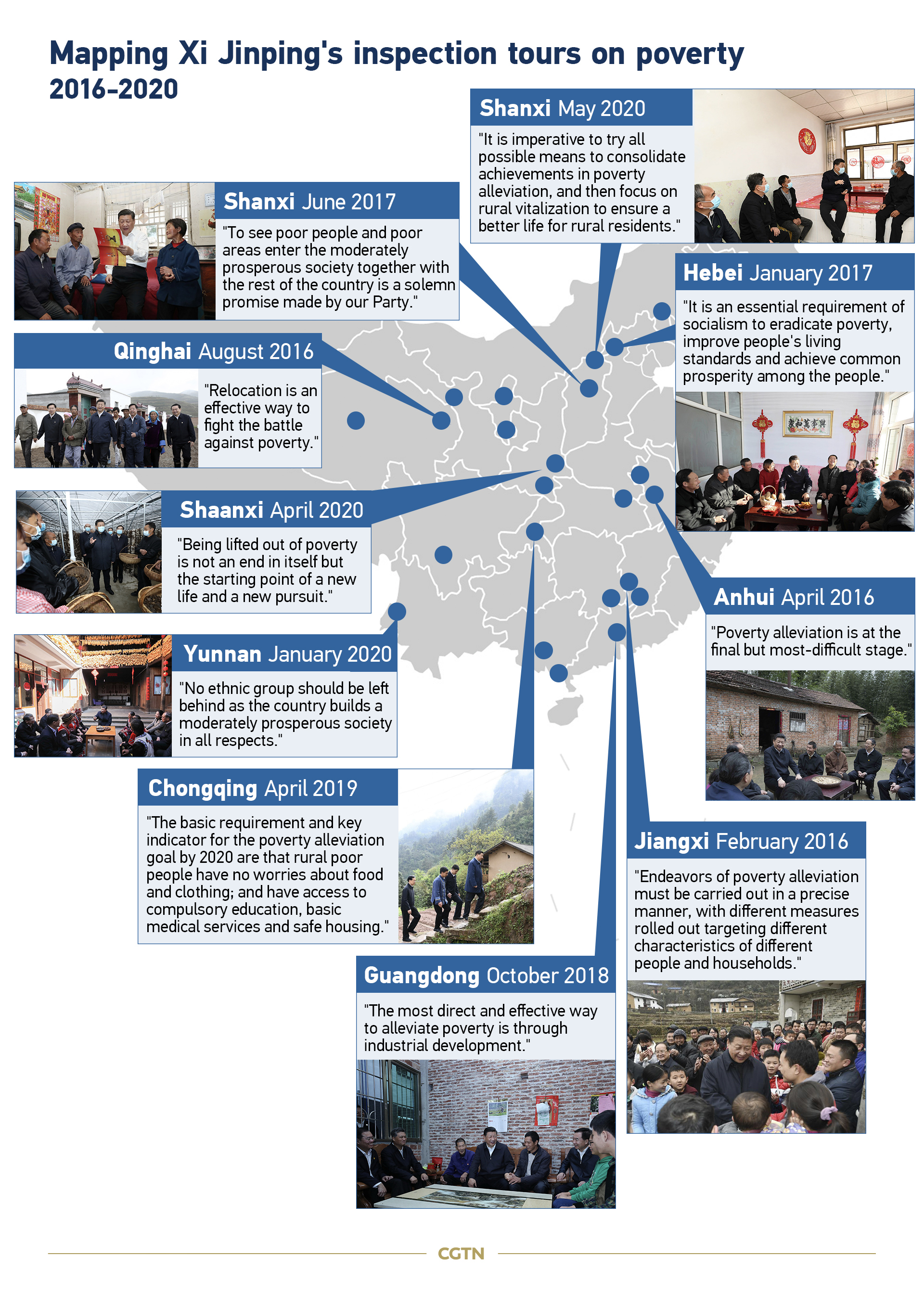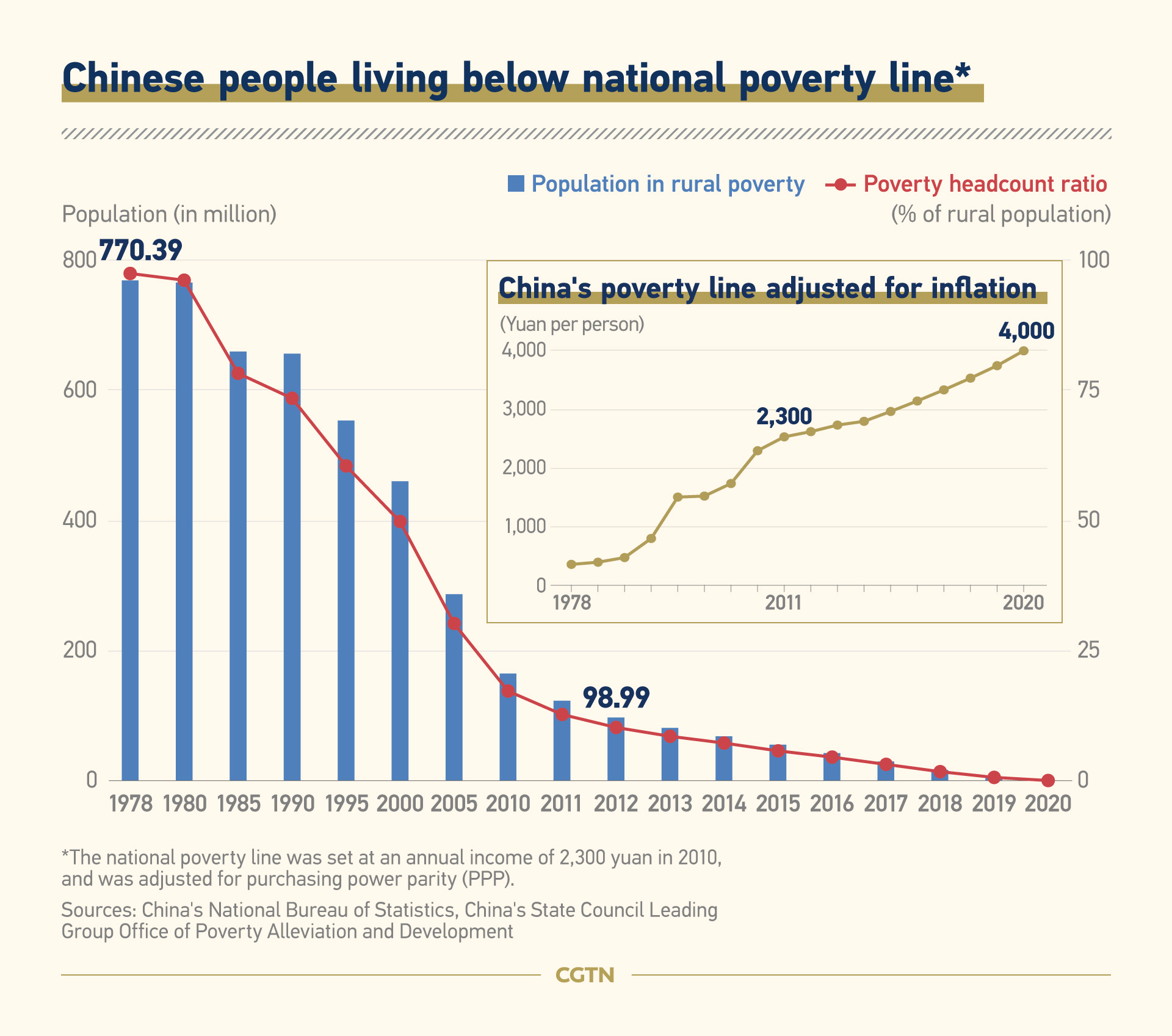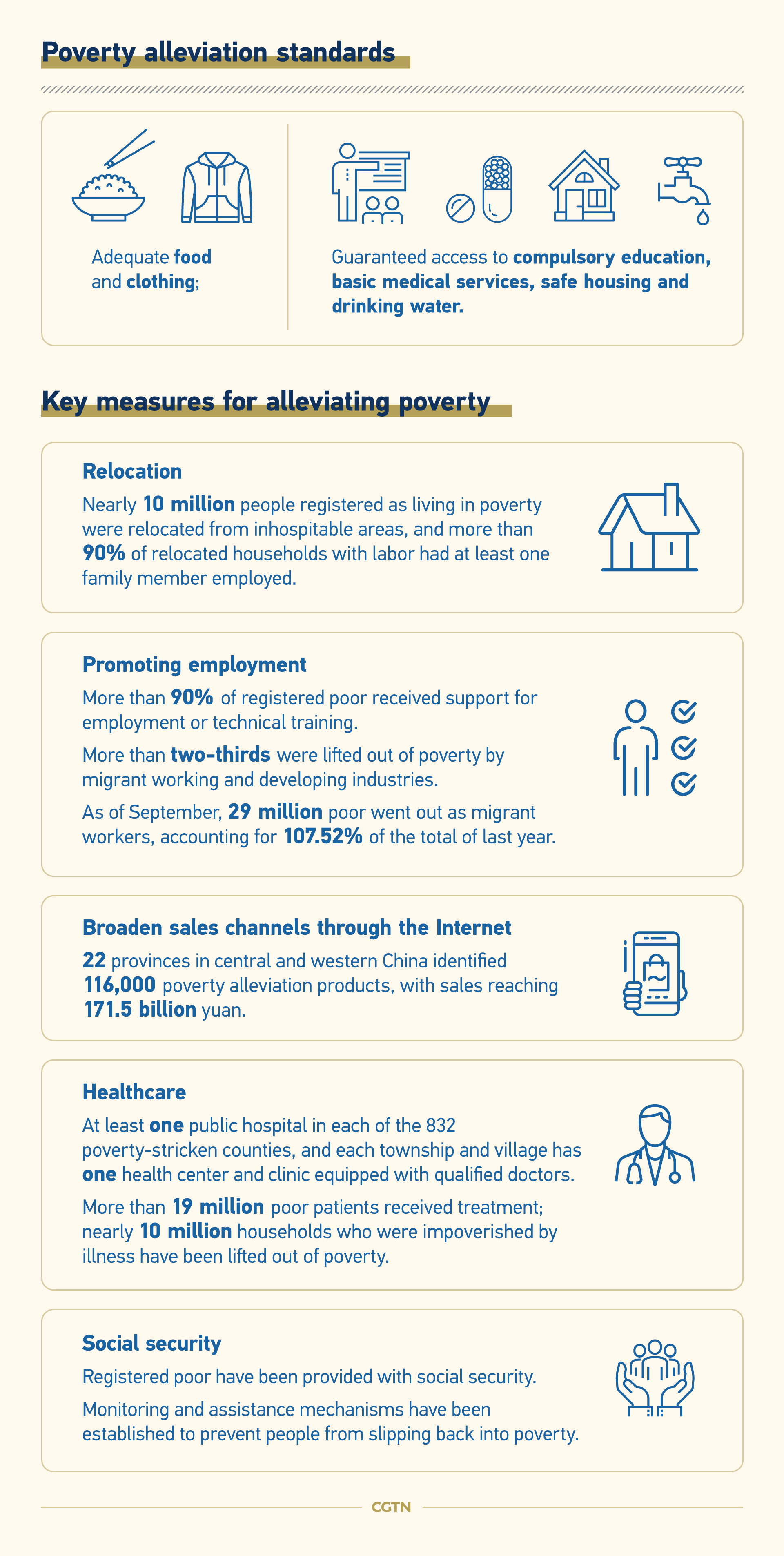"For more than 40 years, I've worked in counties, cities, provinces and the central government of China. Poverty alleviation has always been a vital part of my work and I devoted most of my vigor to it."
– Xi Jinping
In 2020, China has accomplished on schedule its poverty alleviation target for the new era, a significant victory that has impressed the world.
Through eight years of sustained work, China has lifted nearly 100 million poor people out of poverty, and all of its 832 poverty-stricken counties have been delisted.

Read more:
Zero poverty: China eliminates absolute poverty one month before self-imposed deadline
A story of struggle and success: China's 832 poorest counties
Chinese President Xi Jinping, also general secretary of the Communist Party of China (CPC) Central Committee and chairman of the Central Military Commission, has convened a series of meetings on poverty alleviation. Before every such meeting, he would visit impoverished regions to conduct research, learn about the local situation and hear opinions of grassroots officials and members of the public.
Since 2012, Xi has set foot on 14 contiguous areas of dire poverty, featuring highly concentrated poverty and poor development conditions.

In 2016, when he visited a village in northwestern Ningxia Hui Autonomous Region, Xi checked the shower facility in a villager's home, and was pleased to learn that the family had a solar water heater.
Recalling his early trips to some poor areas, Xi said his heart sank when he saw the bumpy and rugged roads, harsh living conditions of the locals and heard stories of children dropping out of school, or patients not getting treated in time.
"But when I went to poor villages in these few years, I saw substantial changes," Xi said at a March symposium. "Seeing people's smiles, I am delighted."
China readjusted its poverty line in 2011, raising it to 2,300 yuan ($352) annualy-an increase of 80 percent over 1,274 yuan ($195) from 2010. Since then, the standard has been raised annually taking into account inflation and other factors. The poverty line for 2020 is 4,000 yuan ($612).

China's poverty-eradication standard, in fact, cannot be defined by income numbers alone. Besides lifting the annual income, the country's basic poverty-eradication campaign also helps ensure that the poor have sufficient food and clothing, as well as access to compulsory education, basic medical services and safe housing.

During an inspection trip to southwest China's Chongqing Municipality in April 2019, Xi visited a mountainous village in Shizhu Tujia Autonomous County.
While visiting a primary school there, Xi promised to ensure children in poor mountainous regions go to school and have a happy childhood.
Stopping by the house of Tan Dengzhou, an impoverished villager, Xi learned that Tan and his wife were unable to work due to illness and thus faced financial difficulties.
People who still live below the poverty line or slip back into poverty due to illness should be taken care of as the priority of poverty-alleviation efforts, Xi said, adding that they should be supported in such forms as minimum-living allowances, medical insurance and medical aid.
Though China has won the epic war against poverty, Xi has stressed many times that shaking off poverty is not the finish line, but the starting point of a new life and new endeavor.
In a visit to central Hunan Province in September 2020, Xi stressed establishing and improving long-term mechanisms for preventing any relapse into poverty and demanded a dovetailing drive of rural vitalization following the victory in poverty eradication.
And China is walking the talk. The CPC Central Committee has decided to set up a five-year transitional period to help consolidate all such achievements, while preferential policies and other support shall remain for counties just out of absolute poverty. And a draft law, with additional provisions on consolidating poverty alleviation achievements, just returned for a second reading at the national legislature late December.
(With input from Xinhua)
(Data editor: Hu Yiwei)

